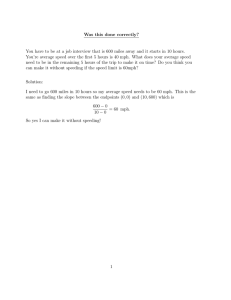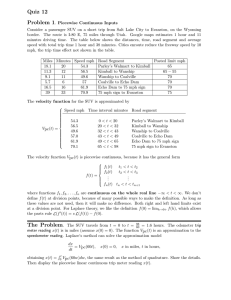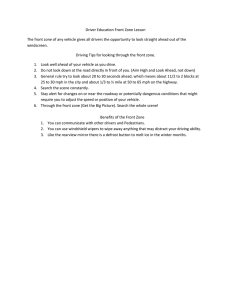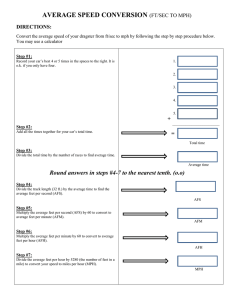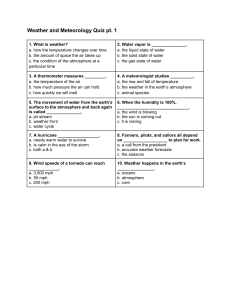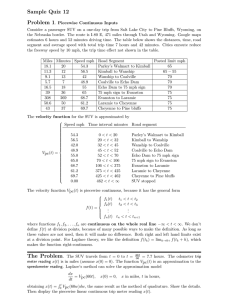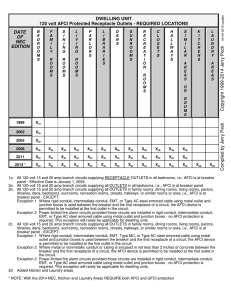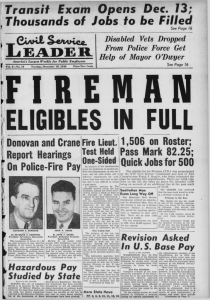Quiz 9 Extra Credit Problem 1
advertisement
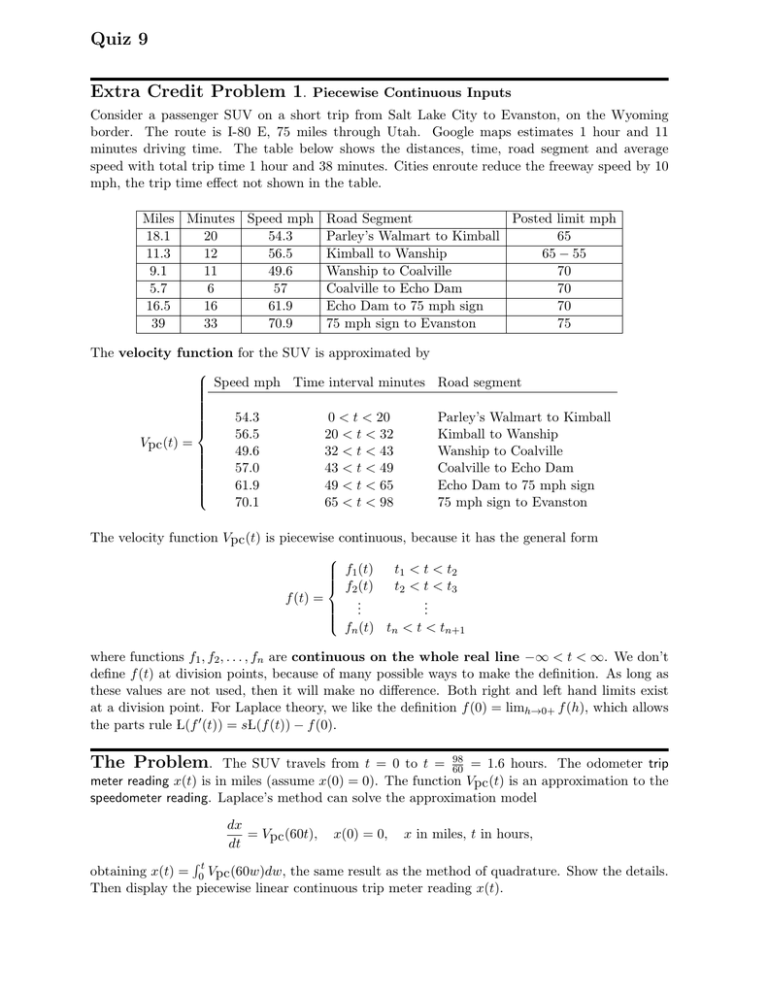
Quiz 9 Extra Credit Problem 1. Piecewise Continuous Inputs Consider a passenger SUV on a short trip from Salt Lake City to Evanston, on the Wyoming border. The route is I-80 E, 75 miles through Utah. Google maps estimates 1 hour and 11 minutes driving time. The table below shows the distances, time, road segment and average speed with total trip time 1 hour and 38 minutes. Cities enroute reduce the freeway speed by 10 mph, the trip time effect not shown in the table. Miles Minutes Speed mph 18.1 20 54.3 11.3 12 56.5 9.1 11 49.6 5.7 6 57 16.5 16 61.9 39 33 70.9 Road Segment Posted limit mph Parley’s Walmart to Kimball 65 Kimball to Wanship 65 − 55 Wanship to Coalville 70 Coalville to Echo Dam 70 Echo Dam to 75 mph sign 70 75 mph sign to Evanston 75 The velocity function for the SUV is approximated by Vpc (t) = Speed mph Time interval minutes Road segment 54.3 0 < t < 20 Parley’s Walmart to Kimball 56.5 49.6 57.0 61.9 70.1 20 < t < 32 32 < t < 43 43 < t < 49 49 < t < 65 65 < t < 98 Kimball to Wanship Wanship to Coalville Coalville to Echo Dam Echo Dam to 75 mph sign 75 mph sign to Evanston The velocity function Vpc (t) is piecewise continuous, because it has the general form f (t) = f1 (t) f2 (t) t1 < t < t2 t2 < t < t3 .. . .. . f (t) t < t < t n n n+1 where functions f1 , f2 , . . . , fn are continuous on the whole real line −∞ < t < ∞. We don’t define f (t) at division points, because of many possible ways to make the definition. As long as these values are not used, then it will make no difference. Both right and left hand limits exist at a division point. For Laplace theory, we like the definition f (0) = limh→0+ f (h), which allows the parts rule L(f 0 (t)) = sL(f (t)) − f (0). The Problem. The SUV travels from t = 0 to t = 98 60 = 1.6 hours. The odometer trip meter reading x(t) is in miles (assume x(0) = 0). The function Vpc (t) is an approximation to the speedometer reading. Laplace’s method can solve the approximation model dx = Vpc (60t), dt x(0) = 0, x in miles, t in hours, obtaining x(t) = 0t Vpc (60w)dw, the same result as the method of quadrature. Show the details. Then display the piecewise linear continuous trip meter reading x(t). R
